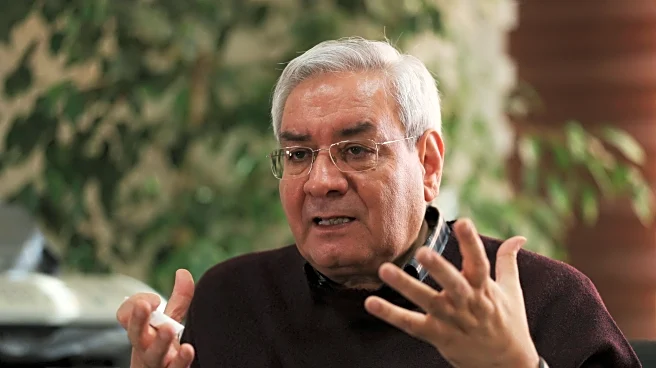What is the story about?
What's Happening?
Moshe Lavi, the brother-in-law of Omri Miran, who has been held hostage by Hamas since October 7, 2023, shared insights on the challenges facing Israelis and Palestinians in healing from recent events. Lavi expressed skepticism about the sustainability of the peace brokered by President Trump, highlighting the region's lack of maturity in coexisting peacefully. The discussion, hosted by NPR's Andrew Limbong, delved into the complexities of regional dynamics and the emotional toll on families affected by the hostage situation.
Why It's Important?
The ongoing hostage crisis underscores the fragile nature of peace agreements in the region and the deep-seated issues that continue to hinder lasting peace. The skepticism expressed by Lavi reflects broader concerns about the effectiveness of diplomatic efforts and the need for genuine reconciliation. This situation impacts U.S. foreign policy and its role in mediating conflicts, as well as the humanitarian implications for those directly affected by the violence.
What's Next?
The future of peace in the region remains uncertain, with potential diplomatic efforts required to address the underlying issues. Stakeholders, including political leaders and international organizations, may need to reassess strategies to foster genuine dialogue and cooperation. The humanitarian situation for hostages and their families will likely continue to be a focal point for advocacy and intervention.
Beyond the Headlines
The hostage crisis highlights ethical considerations in conflict resolution and the importance of addressing historical grievances. The emotional narratives of affected families may influence public opinion and policy decisions, emphasizing the human cost of geopolitical conflicts.















